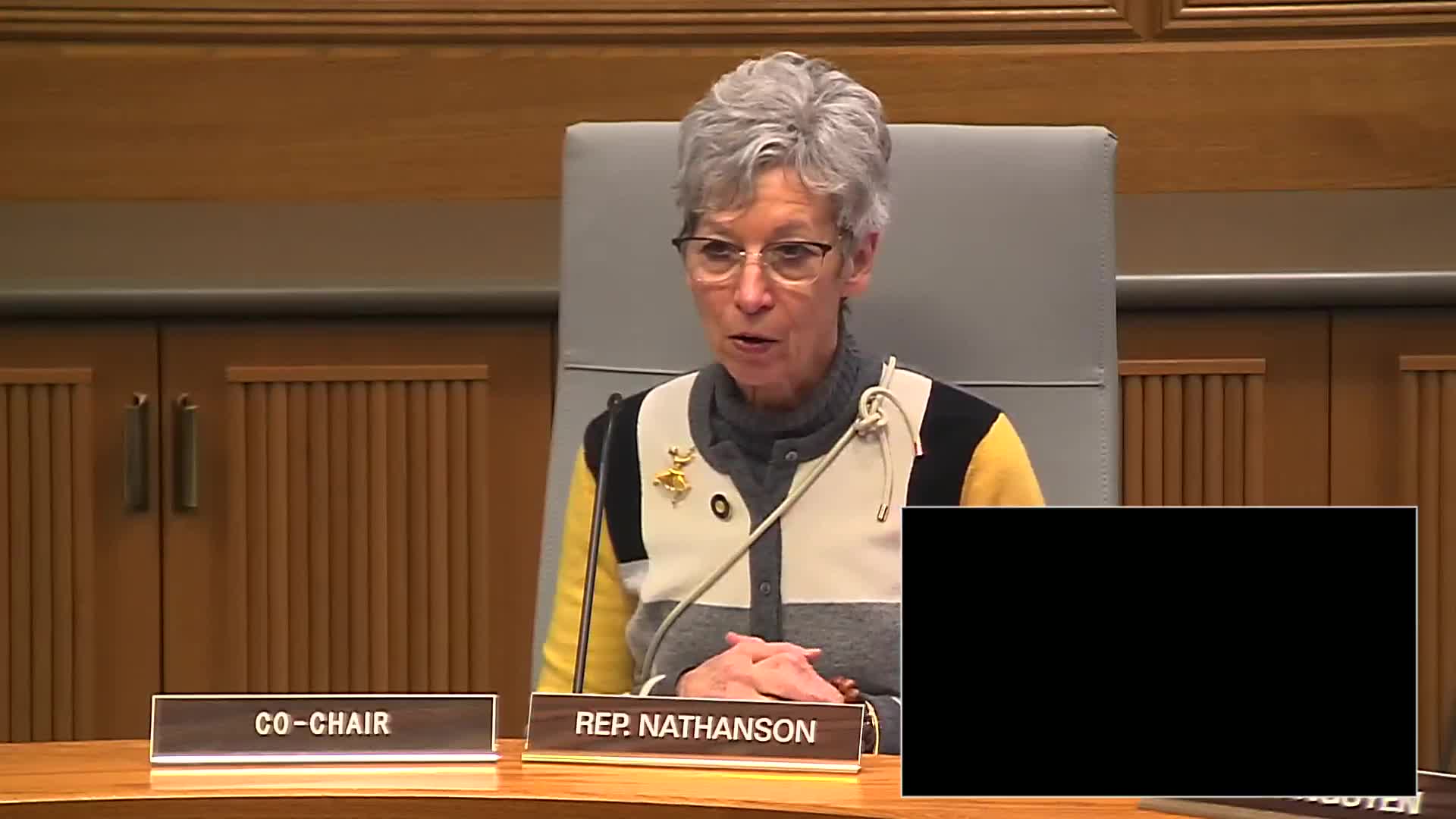Oregon hearing on HB 3592 advances case for permanent AI commission; no vote taken
Get AI-powered insights, summaries, and transcripts
Subscribe
Summary
Lawmakers held a public hearing and informational session on House Bill 3,592 to create an Oregon Commission on Artificial Intelligence and a chief AI officer; testimony stressed opportunities, privacy and security risks, and the need to clarify scope and procurement safeguards.
State lawmakers and stakeholders on April 11 heard broad support and technical concerns for House Bill 3,592, legislation that would establish an Oregon Commission on Artificial Intelligence and direct the State Chief Information Officer to hire a chief artificial intelligence officer.
The public hearing featured testimony from legislators, civil-society groups, local governments, public-safety agencies and private-sector technology organizations, who described AI’s potential to improve services and the need for governance to protect privacy, equity and public safety. No formal vote on the bill was recorded during the meeting; the committee closed the public hearing and then held an informational session on state work to inventory AI use across agencies.
Representative Daniel Winn, state representative for House 238, said the bill would create “a permanent commission on artificial intelligence” to monitor AI and advise the Legislature. Latonya Meyer, chief of staff to Senator Aaron Woods, said the commission should help “harness the full benefits of AI while safeguarding our fundamental values fairness, accountability, privacy, and human dignity.”
Supporters highlighted concrete uses of AI in state agencies and local governments while urging safeguards. Terrence Woods, Oregon’s state chief information officer, emphasized that “AI is only as good as the data of which it is using and that is at the bottom of of this pyramid,” and outlined recommendations from the state government Artificial Intelligence Advisory Council’s final report to Governor Tina Kotek, delivered Feb. 11.
Many testifiers urged the committee to keep a human oversight focus. Kimberly McCullough, senior counsel for government relations for the Oregon Judicial Department, asked that the bill clarify whether the commission will review public-sector uses of AI and, if public-sector oversight is included, that the Judicial Department be given “a seat at the table, on this commission as a non voting member.”
Committee members and witnesses raised several implementation and security issues during the informational portion. The committee’s inventory of executive-branch agencies showed roughly 200 distinct AI-enabled products or systems in use from about 130 vendors, and about 100 unique use cases; agencies reported that roughly 40% of those systems support agency decision-making rather than only internal productivity. The Department of Administrative Services’ Office of Enterprise Information Services is piloting Microsoft 365 Copilot features for agencies; the Department of Environmental Quality reported about 300 users accessing a free version of ChatGPT for internal drafting and research.
Security risks were a recurring concern. Representative Dan Nguyen asked about a recent cyberattack on the VEQ testing system; Woods said investigators had found “no evidence of data being breached at this point” and promised an after-action report to the committee. Witnesses and the CIO urged review of existing procurement contracts to ensure terms address new AI-related uses of agency data and vendor obligations.
Private-sector and higher-education witnesses framed the commission as a way to coordinate state workforce and research assets. Skip Newberry, president and CEO of the Technology Association of Oregon, compared Oregon’s opportunity to efforts in Massachusetts and recommended that the commission coordinate with universities and industry to expand compute and training capacity.
Several amendments to HB 3592 were described in testimony. A “-1” amendment would add a chief data privacy officer role, the “-2” amendment would permit the House and Senate presiding officers to appoint 12 of the 14 commission members, and a “-3” amendment would place the commission within the Department of Justice. The public hearing record did not include a formal vote on any of those amendments during the session.
The committee closed the public hearing on HB 3,592 and proceeded to an informational briefing in which state CIO Terrence Woods summarized the advisory council’s action plan and recommended immediate steps such as a statewide inventory of AI use, human-in-the-loop requirements, and a checklist for agency adoption that includes data provenance and bias evaluation. The committee did not advance the bill during the April 11 meeting.
